
- MEDIA RELEASE -
Shariah
Scholars and Industry Stakeholders
Discuss Issues on Financial Safety
Nets
at the IFSB-ISRA
Shariah
Roundtable
ISLAMIC FINANCE - SHARIAH
Kuala Lumpur, MALAYSIA
Thursday, 19th November 2015
The Islamic Financial Services Board (IFSB) and
International Shariah Research Academy for Islamic Finance (ISRA)
have successfully organised a Shariah Roundtable themed, ‘Financial Safety Nets:
Striking a Balance between Shariah Requirements and the Soundness of the
Islamic Financial System’. The Roundtable was held on 5 November 2015 in Kuala
Lumpur, Malaysia.
The Roundtable aimed to
provide a platform to Shariah scholars, legal practitioners, regulators
and market players for having in-depth deliberations on key aspects of financial
safety nets such as Lender of the Last Resort (LOLR) and Deposit Insurance
Schemes from the Shariah perspective.
Over 70 delegates from nine
jurisdictions among the IFSB members and non-member organisations –
representatives from market players, regulatory bodies, and international
agencies – Shariah scholars as well as academia attended this
Roundtable.
Mr.
Jaseem Ahmed, the Secretary-General of the IFSB, in his Opening Address,
highlighted that financial safety nets feature as a key component of an
integrated financial stability framework, the importance of which was
highlighted during the global financial crisis. He emphasised that safety net
mechanisms such as lender of last resort facilities and deposit insurance
schemes should be compatible with Shariah principles. To offer these schemes in a
wider set of jurisdictions, it
would be important for Shariah scholars to lead the discussion
along with regulators, market players and legal practitioners in order to identify the major obstacles,
issues and challenges in introducing such facilities on Shariah- compliant basis. Mr Jaseem also informed the
audience that Shariah scholars play a pertinent role in the work
of the IFSB – their role is embedded in the due process of preparing the IFSB
standards and guiding principles – where the members of the Shariah Board of the Islamic Development
Bank vet thoroughly and review the IFSB draft document prior to submission to
the IFSB Council for issuance. The Shariah community also has the
opportunity to provide feedback during the document’s public consultation phase.
Professor
Dr. Mohamad Akram Laldin, Executive Director of ISRA, in his Opening Address,
highlighted the need for a more collaborative approach between the various
stakeholders that would help to develop synergies and support the growth of
Islamic financial services industry on a sound footing. He also stressed that
Shariah
is the backbone of this industry, as it is the key distinguishing factor that
makes Islamic finance distinct from the conventional finance. Finally, he
reiterated the importance of following the broader principles of Shariah
to devise instruments for financial safety nets and other products for
consumers.
The Opening
Session was followed by a presentation on the IFSB’s key activities and
strategic focus by Dr Sherif Ayoub, Assistant Secretary-General of the IFSB, who
enlightened participants on the key role Shariah scholars play in reviewing
and providing feedback on the draft prudential standards during various stages
of the development process.
The session
on LOLR was preceded by a presentation entitled, Strengthening the Financial Safety Net: The
Role of Shariah-compliant
Lender-of-Last-Resort Facilities as an Emergency Financing Mechanism
by Mr. Jamshaid Anwar Chattha, Chief
Financial Analyst, Financial Stability Office/Supervision Sector, Central Bank
of Kuwait. Mr. Jamshaid provided an overview of the concept of financial safety
nets and highlighted the operational and Shariah issues faced by
central banks in the provision of an LOLR facility to Islamic banks. He also
shared with the audience the experience of Central Bank of Kuwait in providing
Shariah-compliant LOLR facilities.
The first
session of the Roundtable, themed, Lender
of Last Resort Facilities – Structuring Shariah-Compliant Instruments and
Mechanisms
was chaired
by Professor
Dr. Ashraf Md Hashim,
CEO, ISRA Consultancy. The
speakers for this session were two members
of the ISRA Council of Scholars, Sheikh
Professor
Dr. Mohamed Ali Elgari, and Sheikh Dr. Oni Sahrani who presented their papers on
the session theme. Sheikh Mohamed Elgari highlighted key characteristics of an
effective LOLR mechanism and provided his critique on the currently practiced
Shariah-compliant LOLR structures. He then proposed two modified
mechanisms; the first one based on the idea of
daily Mudarabah
contracts, in which an Islamic bank would act as a working partner
(Mudarib) and the Central Bank would act as the capital provider. The
second alternative proposed by him relied on the use of modified repurchase
agreements. Sheikh
Sahrani elaborated
on the importance of LOLR
facilities for Islamic banks and overall stability of the Islamic financial
system. He also proposed various alternative structures to meet the objectives
of LOLR, such as financing through Mudarabah, sale with a promise of
repurchase, establishing a joint fund for the purpose of liquidity management,
providing interest-free loans by the central bank and the issuance of investment
Sukuk.
The two
discussants who participated in this session were Mr. Badlisyah
Abdul Ghani, President of the Chartered Institute of Islamic Finance
Professional (CIIF), Former CEO of CIMB Islamic, Malaysia and Professor Dr.
Engku Rabiah Adawiyah Engku Ali, Professor, International Islamic University
Malaysia (IIUM). Mr. Badlisyah pointed out the importance of using the right
approach when communicating the Shariah
requirements
to the central banks, and the need to find the best way to implement and execute
the Shariah-compliant LOLR facilities in an effective manner. On the
other hand, Professor Engku
Rabiah commented on the proposed mechanism of daily Mudarabah
contracts
by highlighting some of the possible Shariah
issues that could arise in relation to its implementation and observed that a
Wakalah
structure can also be used as an alternative in which the
central bank will act as the principal and the Islamic bank will act as an
agent. Moreover, she shared with the audience some Shariah issues in
undertaking the repo agreements.
The
afternoon session started with a presentation from Mr. Syed
Faiq Najeeb, Member of the Secretariat, Technical & Research, IFSB, themed
Strengthening the Financial Safety Net:
The Role and Mechanisms of Shariah-compliant Deposit Insurance
Schemes. Drawing from the IFSB survey and draft paper on this subject, he
deliberated on the importance of developing deposit insurance schemes on Shariah-compliant basis,
which are considered an indispensable component of financial stability regimes
in the post crisis world.
He also highlighted the current Shariah-compliant models of deposit
insurance schemes that are being implemented in different jurisdictions and the
operational and Shariah
challenges that need to be considered in the implementation of these
schemes.
Shariah-compliant
Structures for a Deposit Insurance Scheme was
the theme of the second session. The chairperson of the session was Sheikh
Dr.
Nizam Mohammad Salih Yaquby, a member of ISRA Council
of Scholars. The
speakers for this session were Sheikh Professor
Dr. Ali Muhyi al-Din Ali al-Quradaghi, Research Fellow, ISRA and Associate
Professor Dr. Said Bouheraoua, Senior Researcher, ISRA and Editor-in-chief, ISRA
International Journal of Islamic Finance who presented the paper of Sheikh Dr.
Abdul Sattar Abu Ghuddah, a member of ISRA Council
of Scholars.
Sheikh
al-Quradaghi
gave
a description of the three types of deposits which require protection – the
current, saving and investment accounts. He emphasised that insuring current and
saving accounts is similar to the insurance of debts. Therefore, it is
permissible as long as the underlying concept being used is that of
Takaful. As for the protection of investment accounts, the speaker noted
that the capital of such accounts can be insured on the basis of Takaful
by relying on two mechanisms. The first mechanism centers on the idea of a
group of Islamic banks negotiating with the Takaful companies to receive
the best possible Takaful coverage for the protection of the capital of
their investment account holders. A second option is for the Islamic banks to
establish a fund to cover any losses suffered by the investment account holders
of any of the participating banks. Dr.
Bouheraoua
started
by detailing the forms of Shariah-compliant
capital protection schemes and proceeded to discuss in detail the key components
and modalities of a Shariah-compliant deposit insurance scheme. He also
touched upon some examples
of Shariah-compliant
deposit insurance schemes being implemented in several jurisdictions.
Three
discussants participated in this session, which included Mr. Mohd.
Sobri Mansor, Senior Manager, Malaysia Deposit
Insurance Corporation, Dr.
Hurriyah El Islamy, Group Co-Head, Shariah
& Governance, CIMB Islamic Bank Bhd and Mr. Madzlan Mohamad Hussain, Partner
& Head, Islamic Financial Services Practice, Zaid Ibrahim & Co. Mr.
Mohd.
Sobri pointed
out that the purpose
of a deposit insurance scheme is to protect the depositors and promote stability
of a financial system, which necessitate the availability of such schemes to
Islamic banks on a Shariah-compliant
basis. This will provide a level-playing field to the Islamic banks and promote
the sustained growth of the Islamic banking industry. He emphasised the
importance of highlighting Shariah
non-compliance
elements present
in
conventional deposit insurance, which would clarify the need for offering
Shariah-compliant
mechanisms
of deposit insurance. He added
that it is also important to assess how the design features of a Shariah-compliant
deposit insurance scheme (SCDIS) can conform to the criteria of an effective
deposit insurance scheme. Dr.
Hurriyah focused
on legal challenges in offering SCDIS in various jurisdictions. She also
elaborated on the insurability of various types of deposits that need protection
and how they can be protected in a Shariah-compliant
manner. Finally,
Mr.
Madzlan noted
that the
deposit insurance schemes for Islamic banks must not only be Shariah-compliant,
they must also be legally effective by having the legal mandate and legal
authority for it to be effective. He also drew the attention of the audience to
the benefits of learning from the experiences of other countries in relation to
the issue of deposit insurance.
The
Roundtable ended with the affirmation that continued debate and engagement among
various stakeholders of the industry on the issue of establishing
Shariah-compliant
LOLR and
deposit
insurance mechanisms will support the
provision of these schemes in more jurisdictions, which would contribute to the
strength and resilience of the Islamic finance industry.
The IFSB
and ISRA plan to jointly publish a set of proceedings (in both Arabic and
English languages) on the deliberations of the Roundtable for wider
dissemination to the stakeholders in 2016.





















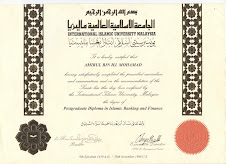.jpg)

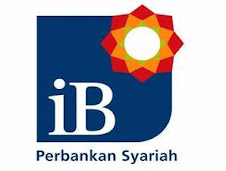.jpg)









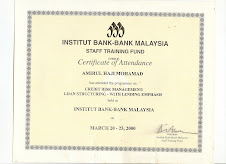.jpg)
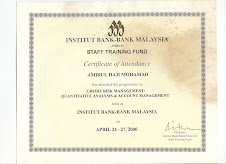.jpg)
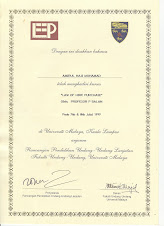.jpg)
.jpg)


